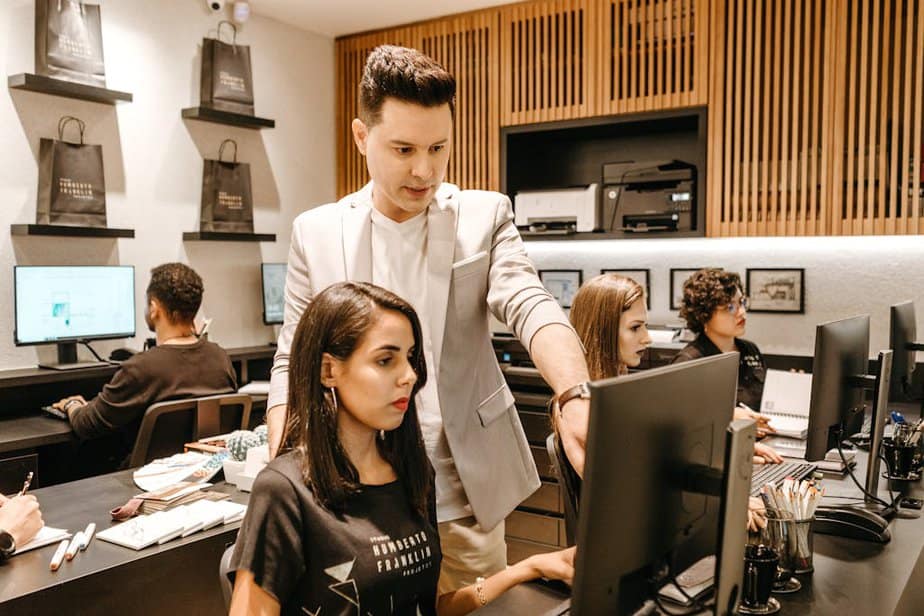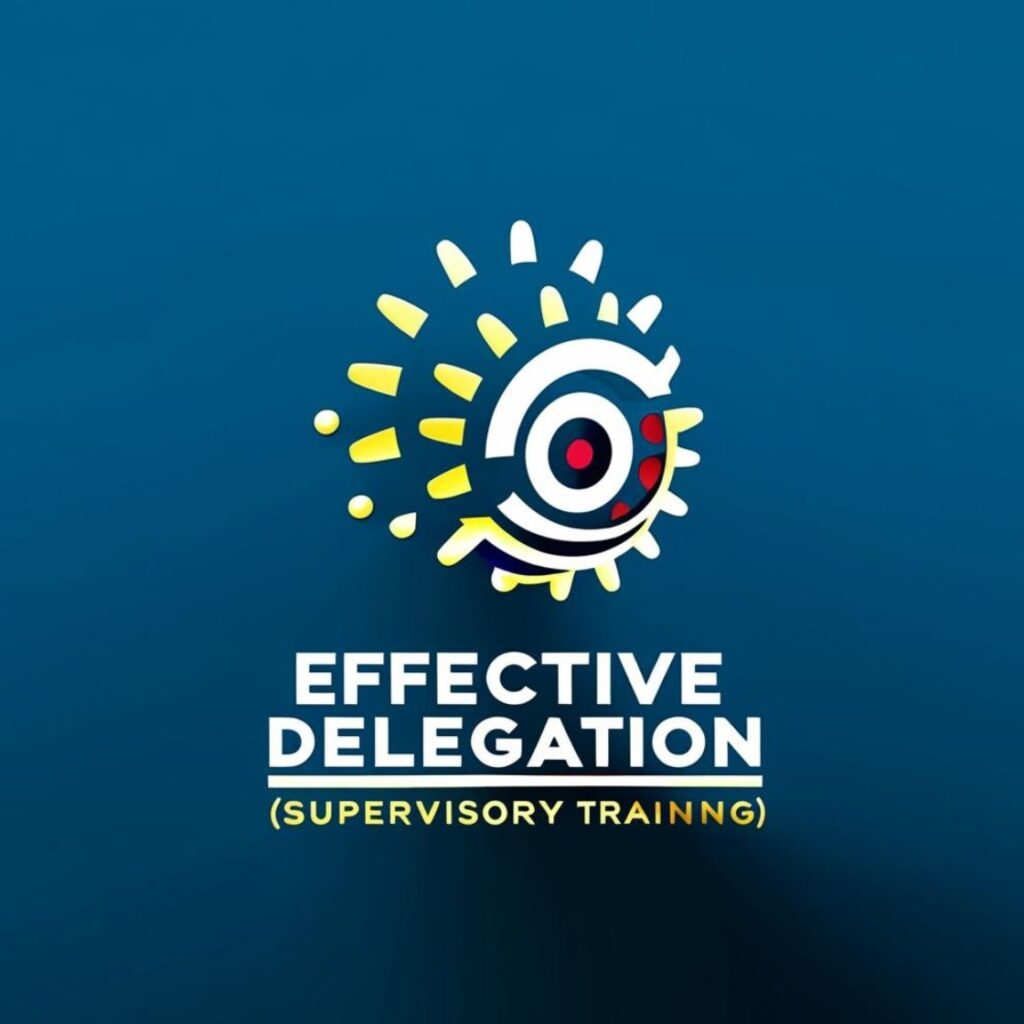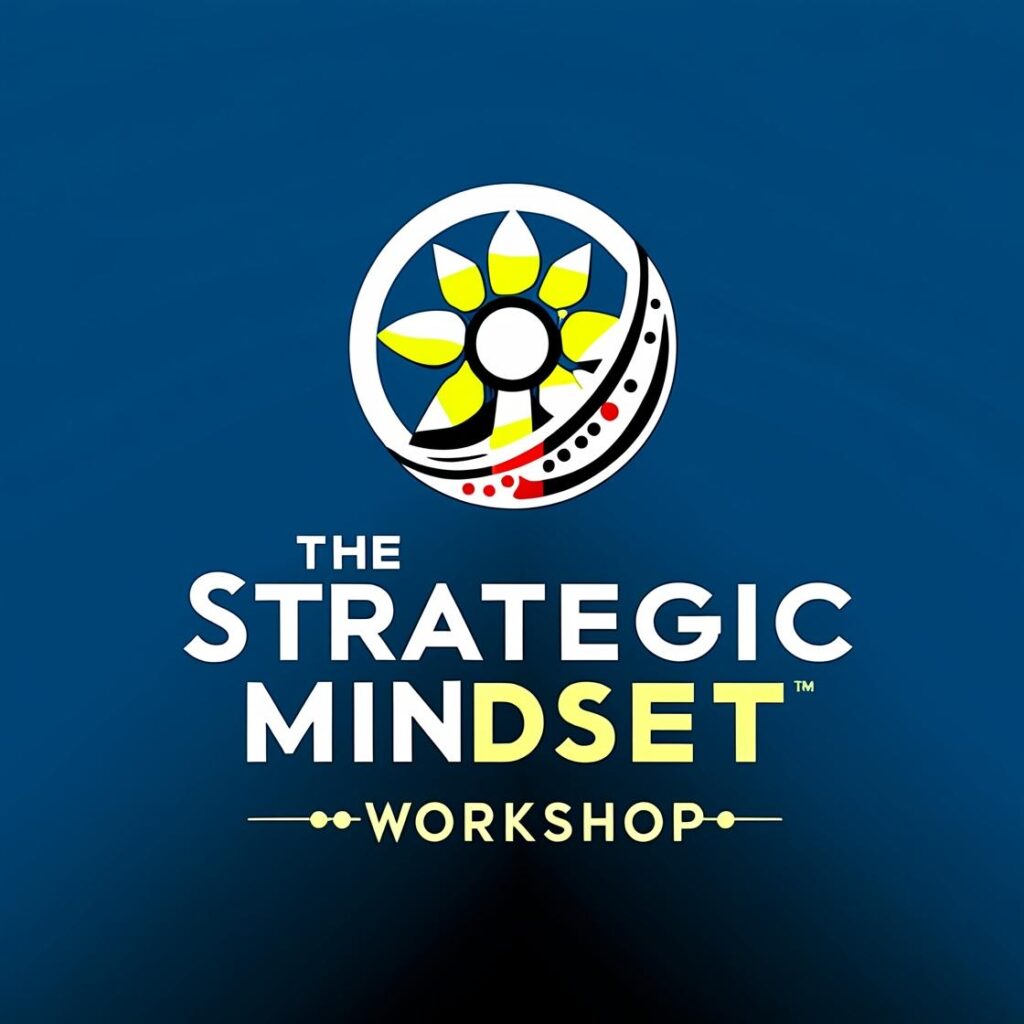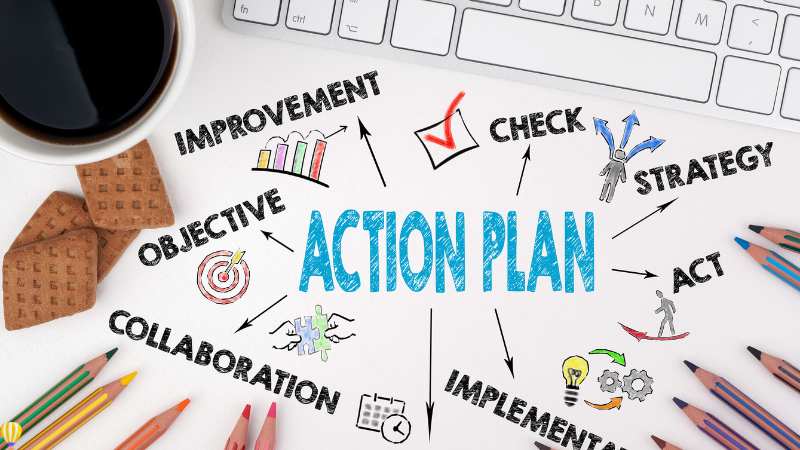In today’s whirlwind business world, having strong leaders isn’t just a bonus—it’s essential. Leadership workshops are like the secret map that transforms managers into leaders who can steer your company toward success. These workshops for managers don’t just teach them to handle day-to-day tasks; they show them how to inspire their teams and drive real results.
Why does this hit home? Because leadership is the magic ingredient that takes a team from good to unstoppable. It’s the spark that helps individuals reach their peak and keeps clients coming back for more. Leadership training, done via workshops, are the bridge to this transformation, giving your managers the skills to lead with confidence, creativity, and heart.
In this article, we’ll dive into why leadership workshops are crucial for your organization, your managers, and your clients. We’ll clear up the difference between management and leadership, and we’ll share tips on how to make your leadership workshops effective. By the end, you’ll see why investing in these workshops is one of the smartest moves you can make.
So, let’s embark on this journey to turn your managers into leaders who can tackle any challenge and elevate their teams to new heights.
The Importance of Leadership Workshops for Organizations
Leadership workshops are a game-changer for any organization. They go beyond mere management training and delve into the heart of what it means to lead effectively. Let’s explore how these workshops can transform your organization.
Enhanced Team Performance and Productivity
When managers evolve into leaders, they bring out the best in their teams.
Leadership workshops equip managers with the skills to motivate and inspire their team members, fostering a collaborative and high-performing environment. This boost in team morale and cooperation leads to increased productivity, as employees feel valued and empowered to contribute their best work.
Moreover, leaders who understand how to set clear goals and expectations can drive their teams toward achieving organizational objectives more efficiently.
The ripple effect of this enhanced performance is felt across the entire organization, leading to better overall results and a more competitive edge in the market.

Improved Decision-Making and Problem-Solving
Effective leadership is synonymous with good decision-making.
Leadership workshops teach managers how to analyze situations critically, consider multiple perspectives, and make informed decisions that benefit the organization. This ability to make sound decisions quickly and confidently is crucial in today’s fast-paced business environment.
In addition to decision-making, these workshops also enhance problem-solving skills. Leaders learn to approach challenges with a strategic mindset, identifying root causes and implementing solutions that are both innovative and practical.
This proactive approach to problem-solving ensures that issues are resolved efficiently, preventing minor hiccups from becoming major roadblocks.
Increased Employee Engagement and Retention
A leader who knows how to engage their team can significantly reduce employee turnover.
Leadership workshops help managers develop the interpersonal skills needed to build strong relationships with their team members. This personal connection fosters a sense of loyalty and commitment among employees, making them more likely to stay with the organization long-term.
Engaged employees are not only more productive but also more innovative and willing to go the extra mile. They feel a sense of purpose and alignment with the organization’s goals, which translates into better performance and a stronger organizational culture.
By investing in leadership workshops, companies can create an environment where employees thrive and stay motivated, reducing the costly cycle of high turnover rates.

The Benefits of Leadership Workshops for Individuals
Leadership workshops are not just about improving the organization as a whole; they also bring significant benefits to the individuals who participate. These workshops provide personal growth opportunities that can transform a manager’s career and life. Here’s how:
Personal Growth and Development
Leadership workshops are a catalyst for personal development. They provide managers with a deeper understanding of their strengths and areas for improvement.
Through self-assessment tools and personalized feedback, participants gain valuable insights into their leadership style and how they can enhance it.
This personal growth extends beyond the workplace.
The skills learned in these workshops, such as emotional intelligence, resilience, and effective communication, are valuable in all aspects of life. Managers become more self-aware and confident, enabling them to tackle challenges head-on and make better decisions, both professionally and personally.
Building Confidence and Communication Skills
One of the most immediate benefits of leadership workshops is the boost in confidence they provide. Managers learn how to articulate their vision clearly and persuasively, which is essential for effective leadership.
Through practice and constructive feedback, they develop the ability to communicate with authority and empathy.
Improved communication skills lead to better relationships with team members, peers, and superiors. Managers who can convey their ideas effectively are more likely to inspire and motivate their teams.
This enhanced communication fosters a positive work environment where everyone feels heard and valued, leading to higher job satisfaction and productivity.
Developing a Vision and Inspiring Others
Leadership is about more than just managing tasks; it’s about inspiring others to achieve a common goal.
Leadership workshops help managers develop a clear vision for their team and learn how to communicate that vision in a way that resonates with others. This ability to inspire and align team members with the organization’s goals is a hallmark of effective leadership.
Managers who can inspire their teams create a sense of purpose and direction. This not only boosts morale but also drives high performance. Team members are more likely to be engaged and committed when they see their leader as a source of inspiration and guidance.
By attending leadership workshops, managers gain the tools they need to become the kind of leaders who can make a lasting impact on their teams and organizations.

The Impact of Leadership Workshops on Clients
Leadership workshops don’t just benefit the internal workings of an organization; they also have a profound impact on clients. When managers evolve into leaders, the positive effects ripple outward, enhancing client relationships and satisfaction. Here’s how:
Better Service and Client Satisfaction
Effective leadership translates directly into better service for clients.
Managers who have honed their leadership skills through workshops are more adept at understanding client needs and expectations. They lead their teams to provide high-quality service consistently, ensuring that clients feel valued and well-served.
Leadership workshops teach managers to anticipate potential issues and address them proactively. This foresight reduces the likelihood of service disruptions and enhances the overall client experience.
When clients receive reliable, top-notch service, their satisfaction and loyalty to the organization increase significantly.
Strengthened Client Relationships
Strong leadership fosters strong client relationships.
Managers who participate in leadership workshops develop excellent communication and interpersonal skills. They learn how to build trust and rapport with clients, which is crucial for long-term business relationships.
These workshops also equip managers with the skills to handle challenging situations gracefully. Whether it’s negotiating contracts or resolving conflicts, well-trained leaders can navigate these interactions positively, leaving clients with a favorable impression.
Strengthened relationships lead to repeat business and referrals, which are vital for growth.
Enhanced Reputation and Trust
An organization led by strong leaders naturally gains a better reputation.
Clients notice the professionalism and competence displayed by leaders who have undergone leadership training. This boosts the organization’s credibility and trustworthiness in the eyes of clients.
Leadership workshops also emphasize ethical leadership and integrity. Managers who embody these values inspire confidence in clients, assuring them that they are partnering with a trustworthy and reliable organization.
This enhanced reputation not only attracts new clients but also solidifies existing client relationships, providing a stable foundation for continued success.
Management vs. Leadership: Understanding the Difference
In the world of business, management and leadership are often used interchangeably, but they are fundamentally different. Understanding these differences is crucial for developing effective managers who can also lead. Let’s break it down.
Management: Planning, Organizing, and Controlling
Management is all about structure and efficiency. Managers are tasked with planning projects, organizing resources, and controlling processes to achieve specific goals. They set the framework within which the work gets done.
This involves detailed scheduling, resource allocation, and monitoring progress to ensure that tasks are completed on time and within budget.
Good managers are essential for keeping the day-to-day operations of an organization running smoothly. They create order out of chaos, implement systems, and ensure that everyone knows their role and responsibilities.
This structured approach is vital for meeting short-term objectives and maintaining operational stability.
Leadership: Inspiring, Motivating, and Guiding
Leadership, on the other hand, is about vision and influence.
Leaders inspire and motivate their teams, guiding them towards a shared goal. They focus on the bigger picture, setting a direction and rallying people to follow.
Unlike management, which relies on formal authority, leadership is about personal influence and the ability to inspire trust and loyalty.
Effective leaders are visionaries who challenge the status quo and encourage innovation. They create an environment where team members feel valued and empowered to contribute their best ideas.
Leaders are adept at navigating change and uncertainty, providing the guidance and motivation needed to keep the team focused and driven.
Why Managers Need Both Sets of Skills
While management and leadership are distinct, they are both essential for organizational success.
Managers need to develop leadership skills to truly excel in their roles. A manager who can lead effectively can not only ensure that tasks are completed efficiently but also inspire their team to go above and beyond.
Leadership skills help managers to connect with their team on a deeper level, fostering a positive and motivated work environment. When managers combine their organizational abilities with leadership qualities, they become more versatile and effective. They can handle the complexities of modern business, driving both operational efficiency and team morale.
In essence, the best managers are those who can manage tasks and lead people. Leadership workshops are instrumental in developing these dual capabilities, transforming managers into leaders who can guide their organizations to new heights.
Ensuring Effective Leadership Workshops
Creating a successful leadership workshop involves more than just gathering managers in a room and giving a presentation.
It requires careful planning and execution to ensure that participants walk away with valuable skills and insights. Here’s how to ensure your leadership workshops are effective:
Setting Clear Objectives and Outcomes
The first step in designing an effective leadership workshop is to establish clear objectives. What do you want participants to learn? What skills should they develop? Having specific, measurable outcomes in mind helps to tailor the content and activities of the workshop to meet these goals.
Clear objectives also provide a roadmap for the workshop, ensuring that all activities and discussions are aligned with the desired outcomes.
This focus keeps the workshop on track and ensures that participants leave with a solid understanding of key concepts and practical skills they can apply immediately.
Choosing Experienced and Engaging Trainers
The success of a leadership workshop largely depends on the quality of the trainers.
Experienced trainers who have a deep understanding of leadership principles and real-world experience can provide valuable insights and practical advice. Look for trainers who are not only knowledgeable but also engaging and able to connect with participants on a personal level.
Engaging trainers use a variety of teaching methods to keep participants interested and involved. They facilitate discussions, encourage questions, and use real-life examples to illustrate key points.
This interactive approach helps to reinforce learning and makes the workshop more enjoyable and memorable.
Incorporating Interactive and Practical Activities
Leadership cannot be learned through lectures alone.
Effective workshops incorporate interactive and practical activities that allow participants to practice new skills in a safe environment. Role-playing, group exercises, and case studies are all excellent ways to engage participants and deepen their understanding.
These activities should be designed to simulate real-world challenges that participants are likely to face.
By working through these scenarios, managers can develop their problem-solving abilities and learn how to apply leadership principles in their daily work. Practical exercises also provide an opportunity for participants to receive feedback and improve their skills.
Providing Continuous Support and Follow-Up
Learning doesn’t end when the workshop does. To ensure that participants continue to develop their leadership skills, provide ongoing support and follow-up.
This could include regular check-ins, additional training sessions, or access to online resources and communities where participants can share experiences and advice.
Continuous support helps to reinforce the lessons learned during the workshop and provides participants with the resources they need to overcome challenges and continue growing as leaders. It also demonstrates the organization’s commitment to their development, which can boost morale and engagement.
By setting clear objectives, choosing experienced trainers, incorporating interactive activities, and providing ongoing support, you can create leadership workshops that are truly effective.
These workshops will not only enhance the skills of your managers but also drive the success of your organization.
Embrace Leadership Development
Investing in leadership workshops is one of the smartest moves you can make for your organization.
These workshops don’t just teach managers how to handle tasks—they transform them into leaders who can inspire and guide their teams to new heights. The benefits are clear: enhanced team performance, improved decision-making, increased employee engagement, and better client relationships.
Remember, great leadership is the cornerstone of any successful organization. By understanding the difference between management and leadership, and ensuring your workshops are effective, you can foster a culture of excellence and innovation.
Your managers will develop the confidence and skills needed to lead with vision and integrity, making a lasting impact on your organization and its clients.
At Strategic Learning Consultants, we specialize in leadership workshops tailored for Filipino managers. Our workshops are designed to equip your managers with the tools they need to become effective leaders. We use a mix of interactive activities, real-world examples, and continuous support to ensure lasting results.
Don’t let your organization miss out on the transformative power of leadership development. Explore our leadership workshops today and take the first step towards building a stronger, more dynamic team. Your journey to outstanding leadership starts here.
Tailored Leadership Workshops for Managers
Leadership workshops turns good managers into better leaders. Good management is about keeping things running smoothly. Better leadership teaches people how to inspire, influence, and innovate.
Leadership training doesn’t just improve skills; it instills a vision that others are excited to follow.
When leaders are properly trained, the whole organization gets better. Effective leaders are the engines of success. They’re skilled at handling change, boosting team performance, and fostering an environment where new ideas flourish.
These leaders transform challenges into opportunities, making their organizations more adaptable and robust.
Leadership training equips managers for the unexpected. The business world is always changing, and unexpected challenges are the norm.
Leadership training arms managers with the tools they need to face these challenges head-on, ensuring that they and their teams don’t just get by, but actually excel.
Everyone on their team is happier and more committed. Engagement starts at the top. Leaders who are enthusiastic and committed inspire the same in their teams.
Enhancing leadership skills increases job satisfaction and loyalty, which means people stick around not just for the job, but for the leader.
Ongoing leadership training means leaders keep getting better. Leadership training isn’t a one-off—it’s the beginning of a continuous journey of improvement. Leaders who are committed to their own growth are more creative and effective. The commitment to getting better is contagious, setting a standard of excellence throughout the organization.
Investing in leadership training is investing in your organization’s future. Spending on leadership development yields returns in enhanced team performance, higher employee satisfaction, and stronger business outcomes.
Leadership training is more than just an educational experience; it’s a critical investment in the long-term success of your company.
How to Design Effective Leadership Training (PDF)
Unlock the secret to successful leadership training with our quick guide! Discover how to design effective programs that inspire and empower leaders. This easy-to-follow guide is packed with practical tips and actionable steps to help you create impactful training sessions.
Leadership Learning that Works
The kind of workshop that changes mindsets, develops habits, builds skills, and brings desired change.
In 2004, I started facilitating leadership workshops. Initially, my focus was on designing leadership programs to sharpen leadership skills—basic yet essential.
By 2007, my perspective shifted. I started to delve into the ROI of training—how does leadership training truly impact the company and its customers? Customer happiness became my new benchmark for success.
From that point, every program I designed was driven by results, not just intentions. It wasn’t enough to simply deliver workshops; the training had to deliver real value.
Thus, I formulated the DEEP Learning Framework: ensuring every course is Desirable, Effective, Engaging, and Profitable. This wasn’t just a strategy; it was a promise to my clients.
This is my commitment to clients. Every leadership session ensures that each leader not only learns but leads better, boosting their company’s bottom line and customer satisfaction.
This focused approach has defined my mission: to create training that transforms, ensuring substantial returns for both leaders and the organizations they serve.
Why immersive learning experiences in training leaders?
Immersive learning experiences in leadership training offer dynamic, hands-on environments where leaders can practice real-world scenarios, enhancing their skills in decision-making, problem-solving, and team management. These experiences are designed to closely mimic actual challenges leaders face, providing them with the opportunity to apply theoretical knowledge in practical settings.
Immersive learning experiences simplify complex leadership concepts, allowing participants to deeply engage with the material and multiply their learning outcomes. This approach ensures that leaders not only grasp but also apply essential strategies in their daily operations, fostering a robust leadership skill set.
These experiences are advantageous because they enable leaders to experiment with different strategies in a safe environment, receive immediate feedback, and refine their techniques accordingly. This hands-on approach accelerates learning and enhances retention, equipping leaders with the confidence and competence to excel.
Furthermore, immersive learning encourages collaboration and innovation among participants, fostering a culture of continuous improvement and adaptability.
Leaders emerge from these programs ready to inspire their teams and drive organizational success, embodying the practical application of leadership principles in the real world.









